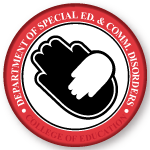Author ORCID Identifier
Document Type
Monograph
Publication Date
2-2017
Publication Title
The Wiley handbook of diversity in special education
First Page
209
Last Page
230
Abstract
According to the Organization for Economic Cooperation and Development (OECD), the literacy and numeracy skills that are distributed across a population will have significant impact on economic and social outcomes. In particular, the “higher the levels of inequality in literacy and numeracy skills … the greater the inequality of distribution of income” (OECD, 2013, p. 26). However, although literacy skills are important, it has been suggested that poor mathematical skills may be more of a handicap than poor literacy skills, especially in the workplace (Butterworth, 2005; McCloskey, 2007). As McCloskey (2007) notes, “… quantitative concepts and information are involved in many facets of home, work and community life …” (p. 421). Poor quantitative skills are likely to pose significant problems in everyday life, even into adulthood (Dougherty, 2003; McCloskey, 2007).
Recommended Citation
Van Garderen, Delinda; Poch, Apryl L.; Jackson, Christa; and Roberts, Sarah A., "Chapter 11: Teaching mathematics to students with disabilities from diverse backgrounds" (2017). Special Education and Communication Disorders Faculty Publications. 54.
https://digitalcommons.unomaha.edu/spedfacpub/54


Comments
— This book chapter, written during my doctoral preparation, provides suggestions for practitioners and a narrative review of the current literature on teaching mathematics to students with disabilities who are also from diverse backgrounds. (Poch, A.L.)
University of Nebraska at Omaha Libraries has permission to deposit this Chapter from the publisher. Any reuse permission must be obtained from the publisher directly. https://www.wiley.com/en-us/The+Wiley+Handbook+of+Diversity+in+Special+Education-p-9781118768822
This copyrighted material is owned by or exclusively licensed to John Wiley & Sons, Inc. or one of its group companies (each a "Wiley Company") or handled on behalf of a society with which a Wiley Company has exclusive publishing rights in relation to a particular work (collectively "WILEY").